
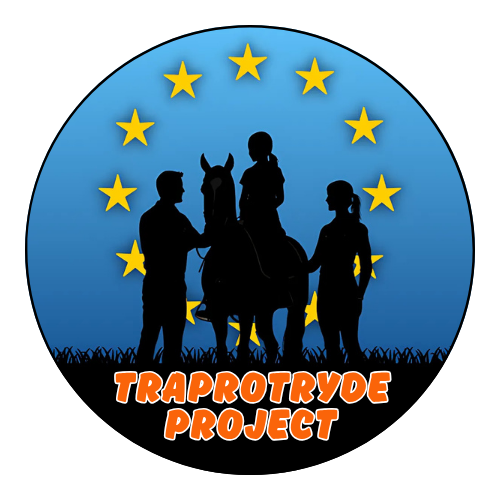
TRAPROTRYDE project aims at collecting and analysing best practices from partner countries to create an innovative training prototype for professionals in education, therapy, sports, and equestrian activities, based on the TRYDE project's combined evaluation method.
This method, developed by a therapist and an equestrian instructor, supports individuals with disabilities in their transition from dependency to autonomy in therapeutic and sports activities.
Objectives
The project intends to:
- Refine and update the combined evaluation method for international dissemination.
- Develop a comprehensive course to train professionals from health, education, leisure, and equestrian sports in this method.
- Enable professionals to assist individuals with disabilities in gaining autonomy through equestrian activities.
Expected outcomes
- A course with theoretical and practical components, helping professionals to attend people with special needs in their transition from dependency to autonomy, to be launched through Salto-Youth platform.
- A manual in the languages of the participating countries, as well as in English, Catalan, and other regional languages, contributing to linguistic diversity and social cohesion, addressing both European and national priorities.
- An online platform for continuous course updates and result-sharing, promoting digital transformation and expanding accessibility.
Long Term Results
- Capacity Building: the project will enhance the skills and knowledge of staff within the participating organizations,
allowing them to offer more effective and diverse Equine-Assisted Interventions (EAI). This development will lead to
improved service delivery and higher quality outcomes for clients. - Standardization of Practices: by collaboratively developing and testing a standardized training course, organizations will
align their practices, fostering consistency and improving the credibility of EAI across the partner countries. This
standardization will help establish best practices and enhance the reputation of each organization. - Networking and Collaboration: the project will strengthen the relationships among the partner organizations, facilitating
ongoing collaboration beyond the project duration. These networks can lead to future projects, sharing resources, and co
hosting training sessions, thereby amplifying impact. - Sustainable Training Programs: after the project's conclusion, the training course will be available for implementation in
each organization’s country, enabling continued professional development for new staff and professionals in the field. The
project results will be disseminated through replication in platforms like SALTO-Youth to reach a broader audience. - Increased Visibility and Credibility: the high-impact Dissemination Event planned for the project’s end will raise
awareness of the participating organizations’ work at a European level, potentially attracting new clients, partnerships, and
funding opportunities. - Adoption of Feedback Mechanisms: the evaluation and feedback tools developed during the project will be integrated
into the organizations’ practices, allowing for continuous improvement of their programs based on participant insights. - Long-term Impact Measurement: the KPIs established during the project will allow organizations to monitor their
progress over time, ensuring that the benefits of the training course are realized and sustained.
- Manager: EAV POINT PLATFORM
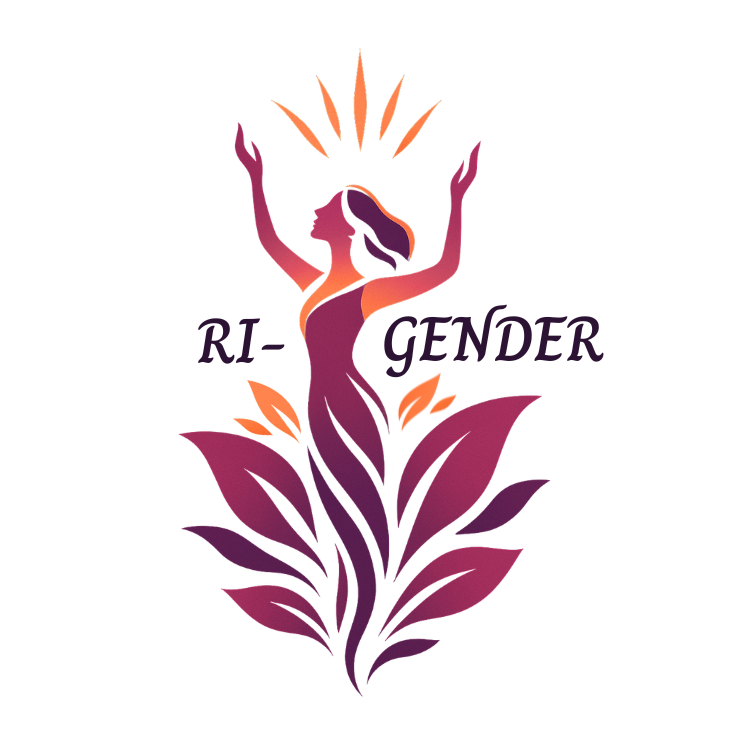

RI-GENDER si pone come un'iniziativa pilota di 12 mesi, un vero e proprio laboratorio di innovazione sociale, per migliorare radicalmente l'approccio territoriale alla GBV, con un'attenzione particolare alle donne vittime GBV che vivono situazioni di fragilità, siano esse migranti, in difficoltà economica o socio-lavorativa, forme meno attenzionate di violenza di genere.
Le donne che subiscono violenza in ambito domestico si scontrano, infatti, con una serie di
barriere strutturali che delineano una specifica vulnerabilità e ostacolano i percorsi di empowerment e autonomia.
Il progetto non si limita a fornire supporto, ma mira a costruire un modello replicabile con approccio intersezionale.
Attraverso azioni sinergiche, RI-GENDER potenzia anche le competenze di operatori e stakeholder, creando una rete locale forte, cementata da almeno 10 accordi di collaborazione e dall’immissione di nuove expertise.
Per le donne target si sperimenteranno laboratori di artigianato e sartoria abbinati anche all’arteterapia per l’espressione di sé, workshop di mindfulness, strumenti di empowerment e di crescita personale per l’empowerment socio-economico e socio-lavorativo, e si offrirà supporto linguistico con focus sulla spendibilità lavorativa delle competenze acquisite nei laboratori, un ponte verso l'autonomia lavorativa e di costruzione del proprio progetto di vita. Un'attenzione speciale sarà dedicata alle figlie (pre)adolescenti.
Il progetto non dimentica la valutazione, un momento cruciale per capire l'impatto reale delle azioni e per validare il modello e le competenze delle beneficiarie, riconoscendo il loro valore con attestati di microcredenziali spendibili sul mercato del lavoro.
Infine, le Linee Guida RI-GENDER permetteranno scalabilità e replicabilità, col contributo di stakeholder anche di rilevanza nazionale ed europea.
- Manager: Simona Calabrò
- Manager: Sara Cannazzaro
- Manager: Caterina Lardieri
- Docente: Arianna Berbeglia
- Docente: Maria Teresa De Luca


TRAPROTRYDE project aims at collecting and analysing best practices from partner countries to create an innovative training prototype for professionals in education, therapy, sports, and equestrian activities, based on the TRYDE project's combined evaluation method. This method, developed by a therapist and an equestrian instructor, supports individuals with disabilities in their
transition from dependency to autonomy in therapeutic and sports activities.
The project intends to:
• Refine and update the combined evaluation method for international dissemination.
• Develop a comprehensive course to train professionals from health, education, leisure, and equestrian sports in this method.
• Enable professionals to assist individuals with disabilities in gaining autonomy through equestrian activities.
Expected outcomes:
• A course with theoretical and practical components, helping professionals to attend people with special needs in their transition from dependency to autonomy, to be launched through Salto-Youth platform.
• A manual in the languages of the participating countries, as well as in English, Catalan, and other regional languages,
contributing to linguistic diversity and social cohesion, addressing both European and national priorities.
• An online platform for continuous course updates and result-sharing, promoting digital transformation and expanding accessibility.
- Manager: Caterina Lardieri
- Docente: Dušana Baloghova
- Docente: Eva Hollá
- Docente: Lorenzo Lucarelli
- Docente: Nikos Nikolaidis
- Docente: Ioannis Eliezer Nikolaou


TRAPROTRYDE project aims at collecting and analysing best practices from partner countries to create an innovative training prototype for professionals in education, therapy, sports, and equestrian activities, based on the TRYDE project's combined evaluation method.
This method, developed by a therapist and an equestrian instructor, supports individuals with disabilities in their transition from dependency to autonomy in therapeutic and sports activities.
Objectives
The project intends to:
- Refine and update the combined evaluation method for international dissemination.
- Develop a comprehensive course to train professionals from health, education, leisure, and equestrian sports in this method.
- Enable professionals to assist individuals with disabilities in gaining autonomy through equestrian activities.
Expected outcomes
- A course with theoretical and practical components, helping professionals to attend people with special needs in their transition from dependency to autonomy, to be launched through Salto-Youth platform.
- A manual in the languages of the participating countries, as well as in English, Catalan, and other regional languages, contributing to linguistic diversity and social cohesion, addressing both European and national priorities.
- An online platform for continuous course updates and result-sharing, promoting digital transformation and expanding accessibility.
Long Term Results
- Capacity Building: the project will enhance the skills and knowledge of staff within the participating organizations,
allowing them to offer more effective and diverse Equine-Assisted Interventions (EAI). This development will lead to
improved service delivery and higher quality outcomes for clients. - Standardization of Practices: by collaboratively developing and testing a standardized training course, organizations will
align their practices, fostering consistency and improving the credibility of EAI across the partner countries. This
standardization will help establish best practices and enhance the reputation of each organization. - Networking and Collaboration: the project will strengthen the relationships among the partner organizations, facilitating
ongoing collaboration beyond the project duration. These networks can lead to future projects, sharing resources, and co
hosting training sessions, thereby amplifying impact. - Sustainable Training Programs: after the project's conclusion, the training course will be available for implementation in
each organization’s country, enabling continued professional development for new staff and professionals in the field. The
project results will be disseminated through replication in platforms like SALTO-Youth to reach a broader audience. - Increased Visibility and Credibility: the high-impact Dissemination Event planned for the project’s end will raise
awareness of the participating organizations’ work at a European level, potentially attracting new clients, partnerships, and
funding opportunities. - Adoption of Feedback Mechanisms: the evaluation and feedback tools developed during the project will be integrated
into the organizations’ practices, allowing for continuous improvement of their programs based on participant insights. - Long-term Impact Measurement: the KPIs established during the project will allow organizations to monitor their
progress over time, ensuring that the benefits of the training course are realized and sustained.
- Manager: Caterina Lardieri
- Manager: EAV POINT PLATFORM
- Docente: Ioannis Eliezer Nikolaou


TANGO-LIFE is a project co-funded by the European Union aimed at improving the inclusion and quality of life of people with intellectual disabilities, mental disorders and other fragilitiesthrough sport/dance as a holistic approach that promotes physical, emotional and social well-being.
Specifically, the project intends to improve the well-being of 60 people with intellectual disabilities, mental disorders and other fragilities in the target communities through the development and implementation of an innovative inclusion model based on tango, which will have a beneficial impact on the target population by improving physical and mental health outcomes.
TANGO-LIFE has therefore developed an inclusive and innovative approach that enables people with intellectual disabilities, mental disorders and other fragilities to participate fully and effectively in society.
The model that TANGO-LIFE aims to create will contribute to the dissemination of the use of tango as an innovative rehabilitation therapy with beneficial effects on the health and psycho-physical well-being of its recipients. The project will develop a multisectoral approach, involving different sectors such as sport, health and education, and will contribute to generating positive and sustainable effects for the beneficiaries and partner organisations involved, as well as for the political systems in which these activities are embedded.
The project targets are:
· People with intellectual disabilities, mental disorders and other vulnerabilities who will benefit from the project activities through a personalised intervention plan.
· Social, sports and health professionals who will benefit from the project through participation in the pilot training course and preparatory dance and gymnastics courses.
· All local, national and European stakeholders who will be involved in the project thanks to the different ways in which they will collaborate and develop relationships with local realities.
The Consortium - Maendeleo for Children APS (Italy), Fede in Azione Coop. Sociale (Italy), Tango Por Tres (Italy), Društvo za kulturoinkluzije (Slovenia) and IBONIS (Spain) - will be engaged in a shared effort to transfer this model from the local/national level to the EU level, facilitating the exploitation of the project results also in European countries outside the Consortium, thus contributing to the wider impact of the project.
- Manager: Sara Cannazzaro
- Manager: Caterina Lardieri
- Creatore di corsi: Simona Calabrò
- Docente: Lucilla Croce
- Docente: Marja Medved
- Docente: Andreja Otonicar
- Docente: Jose Luis Triviño
- Docente: Andreja Turk
- Docente: Liza Zvokelj


The project, co-funded by the European Union, aims to improve the vet system in the field of High and Special Complexity Teams (HSC Teams) through 1 innovative VET model, with high replicability. It focuses on improving the skills of the professionals involved in the management of HSC Funding and Tenders, guaranteeing them high quality standards, innovation, multidisciplinarity and market reconnaissance.
The concept of High and Special Complexity Teams is declined as those teams that include a (minority or prevalent) part of human resources with complexity of various types: psychiatric disorders, physical or cognitive disabilities at various levels of functioning, mental distress, and other Special Needs and are related to the labour inclusion of frail persons.
As a Primary Outcome, the project aims to define the figure of the managers involved in the management of HSC the characteristics they must have, the added value, the best way to train them and to make them operational successfully in the extremely complex working environment in which they operate This result can be achieved through 2 Functional Outcomes: the creation of 1 quality VET system aimed at identifying and consolidating transversal competences useful for HSC managers and the creation of 1 Quality Mark that guarantees the competences of the trained managers and gives them an added value that can be used in the labour market.
Who is the project target group?
The primary direct target group are human resources of working age 18-65 who manage or intend to learn to manage High and Special Complexity Teams. The target manager therefore includes resources working in all types of organisations, profit or non-profit, in particular Social Cooperatives and more generally Social Enterprises.
Other direct targets are the managers of Social Cooperatives and other Social Enterprises, towards whom a specific communication campaign will be conveyed aimed at raising awareness of the role of this strategic figure, the type of qualifying path that is being developed, and the need for a general sectoral leap for the benefit of the fragile target of persons with Special Needs (SN) of working age.
The main indirect target or target group are members of HSCs, people with disabilities or psychiatric illnesses who benefit from the training received by managers, as well as staff colleagues without SN. The host institutions, where they work, are the second indirect target. They will in fact see the performance of HSCs awarded or involved in various ways in its activities improved. The third group of indirect beneficiaries are the family members of persons with SN, especially family caregivers, who see an important support for the working success of their loved ones. The last indirect target group are public and private therapists who follow persons with SN, who see the success of their own therapies improved and the possibility of reduced prescriptions of certain drugs opened up.
- Manager: Simona Calabrò
- Manager: Sara Daneluz
- Manager: Clara Fusi
- Manager: Maurizio Panzironi
- Manager: Silvia Prati
- Manager: Tania Russo
- Manager: Jose Luis Triviño
- Docente: Nicoletta ANGELINI
- Docente: BARBARA SARROCCO


The specific objective of NPCSkills - Non-Profit Consultants' Skills is to improve the transversal skills of the various professional figures who offer consultancy to the European non-profit sector, with a view to innovation, multidisciplinarity, market recognition and the ability to guarantee a high standard of quality of the service offered, regardless of their area of specialization.
The European Third Sector is very diverse in terms of the professionals working in it, the skills required of them differ based on their respective areas of professional specialization, although there are some of a transversal nature that should characterize any professional figure offering consulting services in the nonprofit sector, in order to be qualified as an "expert in the Third Sector." Thus, the expected result is the definition of a professional training model, innovative and replicable, that allows the VET sector to approach the world of the Third Sector in order to fill this need for transversal skills.
The creation of an innovative Quality label that attests to the expertise and specialization of professionals in the nonprofit sector and is based on a set of efficiency and professionalization indicators, determined on a national and European basis and representative of the requirements that different professional figures must meet in order to be qualified as expert consultants to the Third Sector.
Through a vocational training model for consultants in the Third Sector, based on information about the skills most in demand in the market, a tailor-made training offer will be determined, that facilitates the transfer, recognition, and accumulation of skills through teaching and helps increase the flexibility and attractiveness of VET vocational training.
- Manager: Sara Cannazzaro
- Manager: Sara Gutiérrez
- Manager: Caterina Lardieri
- Manager: Jessica Nannetti
- Manager: Elisa Piva
- Manager: Patrizia Vitali
- Creatore di corsi: Simona Calabrò
- Docente: francesca mineo
- Docente: Marta Muñoz
- Docente: Iva Vasileva


The specific objective of TOURISTABLE is to create an innovative training model that enables the VET sector to align with the needs of the labour market while being related to the themes of inclusion and innovation in the tourism sector. Formal and informal learning environments play a fundamental role in stimulating participation in social and cultural life, assisting people with disabilities in reaching their potential.
The expected outcome is a replicable VET model focused on inclusive tourism and the inclusion of organisations active in employment pathways. The focal point is to increase the autonomy of people with disabilities and simultaneously involve them in the enhancement of local cultural and tourist resources. The current attention to the need for broad participation leads to a reconsideration of the concept of accessibility, extending it to all dimensions: physical, cognitive, sensorial, cultural, economic, and educational. Hence, the need to extend opportunities for inclusion, not only by removing physical and sensorial barriers but also by considering communicative and cognitive obstacles in accessing knowledge and flipping the paradigm, making people with disabilities agents of territorial enhancement.
Promoting participation in territorial enhancement for people with intellectual disabilities means realising self-determination, emancipation, inclusion, and empowerment.
- Manager: Maja Baloh
- Manager: Simona Calabrò
- Manager: Carmine antonio Campanelli
- Manager: Sara Cannazzaro
- Manager: Caterina Clemente
- Manager: Andreja Otonicar
- Manager: Jose Luis Triviño
- Manager: Primoz Zibert
- Docente: Blanka Delalut
- Docente: Natalia Lončar
- Docente: Marja Medved
- Docente: Maša Pelc

Il progetto mira a migliorare la qualità della vita e il benessere psico-fisico di 10
bambini (0-4 anni) con disabilità e bisogni speciali (alterazioni nello sviluppo
neuromotorio, cognitivo e neurosensoriale), potenziando la cura e l'assistenza
terapeutica attraverso una maggiore diffusione del babywearing


The specific objective of TOURISTABLE is to create an innovative training model that enables the VET sector to align with the needs of the labour market while being related to the themes of inclusion and innovation in the tourism sector. Formal and informal learning environments play a fundamental role in stimulating participation in social and cultural life, assisting people with disabilities in reaching their potential.
The expected outcome is a replicable VET model focused on inclusive tourism and the inclusion of organisations active in employment pathways. The focal point is to increase the autonomy of people with disabilities and simultaneously involve them in the enhancement of local cultural and tourist resources. The current attention to the need for broad participation leads to a reconsideration of the concept of accessibility, extending it to all dimensions: physical, cognitive, sensorial, cultural, economic, and educational. Hence, the need to extend opportunities for inclusion, not only by removing physical and sensorial barriers but also by considering communicative and cognitive obstacles in accessing knowledge and flipping the paradigm, making people with disabilities agents of territorial enhancement.
Promoting participation in territorial enhancement for people with intellectual disabilities means realising self-determination, emancipation, inclusion, and empowerment.
- Manager: Platform Admin
- Manager: Sara Cannazzaro
- Creatore di corsi: Simona Calabrò
- Docente: alex koukovinis
- Docente: Andreja Otonicar
- Docente: Maša Pelc
- Docente: Jose Luis Triviño
- Docente: Liza Zvokelj


Mit Link è un progetto co-finanziato dalla Regione Lazio nell'ambito dell'Avviso Pubblico "Comunità Solidali 2022" nato con l'obiettivo fondamentale di stimolare, sia mente che corpo, 100 persone non autosufficienti e/o con disabilità; si articola in:
Laboratorio di Musica,
Laboratorio di Teatro,
Laboratorio di Attività sportiva,
Laboratorio di Tango,
Laboratorio di Attività manuali.
Tutte queste attività, insieme ad altri innovativi strumenti di formazione, costituiscono un Kit di strumenti per la gestione delle fragilità, rivolto agli operatori sociali e usufruibile da essi lungo il percorso intrapreso dalle persone diversamente abili verso una migliore condizione di vita.
Il progetto mira a migliorare l'inclusione sociale di 100 persone non autosufficienti o con disabilità nel territorio di Roma – Città Metropolitana – area territoriale socio-sanitaria ASL RM6; per raggiungere tale obiettivo, il progetto intende creare un modello territoriale MIT Link di valorizzazione e applicazione di strumenti innovativi di gestione delle fragilità e di promozione dello sport come strumento di aggregazione e crescita sociale. Segue ora l'elenco dei Partners del Progetto:
CAPOFILA: Maendeleo for Children APS;
PARTNER: Confraternita di Misericordia Ariccia – Empowerment for Social Change;
COLLABORATORE GRATUITO: Cooperativa GIROTONDO;
SOGGETTI TERZI: FEDE IN AZIONE (FIA), TANGOBAR, SMe System Srl.
- Creatore di corsi: Simona Calabrò
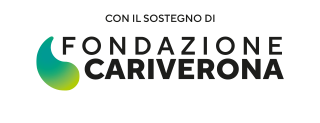
Il progetto “Villa Zuppani, la ricchezza della biodiversità” intende contribuire all'avvio nella Valbelluna di uno sviluppo fondato sulla conservazione degli ecosistemi e il rispetto dell’autenticità dei luoghi, a contrasto delle dinamiche di spopolamento e abbandono caratteristiche soprattutto della parte alta della provincia di Belluno.
Con interventi mirati e articolati, in una strategia
integrata e condivisa da attori pubblici e privati, il progetto vuole
rendere il compendio di Villa Zuppani un volano per lo sviluppo
locale e un modello per lo sviluppo di insediamenti territoriali
simili, attraverso la valorizzazione delle caratteristiche intrinseche
dei luoghi e delle produzioni locali, la conservazione della
biodiversità in tutte le sue forme, intesa come ricchezza della vita
in sé, la creazione di spazi e luoghi interessati da nuove dinamiche
sociali, culturali ed economiche e la definizione di un’offerta
turistica esperienziale e sostenibile.
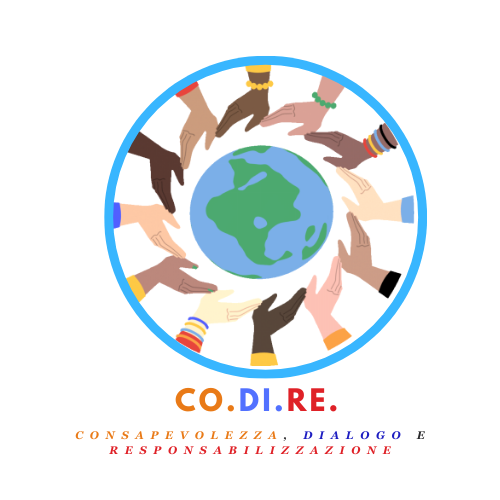

Il progetto CO.DI.RE. ha come obiettivo specifico il miglioramento, la conoscenza e la vicinanza dei ragazzi e giovani (età 13-18 anni) dell’Emilia-Romagna all’ECG, ai suoi obiettivi e valori, attraverso la creazione di un innovativo sistema territoriale di promozione della Cittadinanza Globale basato sulla sinergia tra mondo della scuola, società civile e imprenditoriale e enti locali, finalizzato al consolidamento di una sensibilizzazione diffusa e imperniato sull’interconnessione tra scelte quotidiane e Sviluppo Sostenibile.
Il progetto si rivolge ai gruppi target:
1) Docenti del 3° anno della scuola secondaria di I grado e secondaria di II grado
2) Studenti del 3° anno della scuola secondaria di I grado e secondaria di II grado
3) Enti locali
4) Associazioni del terzo settore e società civile
5) Mondo del lavoro e imprese locali
Il percorso promuove:
- protagonismo attivo dei docenti
- costituzione di un gruppo di Ricerca-azione per elaborare materiale didattico ed educativo efficace, individuare e mettere a regime i rimandi alle specifiche discipline, l’interdipendenza reciproca, pratiche didattiche e metodologie da adottare all’interno e all’esterno della scuola
- sviluppo di metodologie che nutriranno indicatori locali legati all’ECG in modo da monitorare lo stato di attuazione degli obiettivi e verificare i cambiamenti auspicati sul territorio.
Gli insegnanti alla fine della formazione riceveranno degli Open Badge, distintivi digitali, visualizzabili e ricchi di informazioni, che certificano competenze, capacità, appartenenza a gruppi, partecipazioni a corsi o attribuzione di crediti.
- Manager: Rosalba Armando
- Manager: GABRIELE BASSI
- Manager: francesca bigliardi
- Manager: Simona Calabrò
- Manager: Sara Cannazzaro
- Manager: Livia Massari


Il progetto CO.DI.RE. ha come obiettivo specifico il miglioramento, la conoscenza e la vicinanza dei ragazzi e giovani (età 13-18 anni) dell’Emilia-Romagna all’ECG, ai suoi obiettivi e valori, attraverso la creazione di un innovativo sistema territoriale di promozione della Cittadinanza Globale basato sulla sinergia tra mondo della scuola, società civile e imprenditoriale e enti locali, finalizzato al consolidamento di una sensibilizzazione diffusa e imperniato sull’interconnessione tra scelte quotidiane e Sviluppo Sostenibile.
Il progetto si rivolge ai gruppi target:
1) Docenti del 3° anno della scuola secondaria di I grado e secondaria di II grado
2) Studenti del 3° anno della scuola secondaria di I grado e secondaria di II grado
3) Enti locali
4) Associazioni del terzo settore e società civile
5) Mondo del lavoro e imprese locali
CO.DI.RE. è organizzato in 3 macro-gruppi di azioni seguendo i relativi risultati attesi:
AZIONI RA1 (COnsapevolezza di ragazzi e giovani (età 13-18 anni) della dimensione della cittadinanza in chiave globale, attraverso la conoscenza dell’Agenda delle Nazioni Unite 2030, degli Obiettivi di Sviluppo Sostenibile e delle principali sfide globali, migliorata). Le 4 attività previste sono incentrate sulla formazione di docenti e studenti sugli OSS dell’Agenda 2030 grazie a metodologie didattiche innovative, gruppi di Ricerca-azione per stimolare e accompagnare azioni di cittadinanza degli studenti e contribuire a rendere le proprie scuole più sostenibili e globali. Verranno sperimentati percorsi didattici interdisciplinari e partecipativi per (e con) gli studenti delle classi coinvolte, per l’acquisizione di competenze di cittadinanza globale sul piano cognitivo, socio-emotivo e comportamentale. Saranno introdotti all’interno dei curricoli scolastici webinar, workshop, laboratori di apprendimento esperienziale, su diritti umani, ambiente, giustizia sociale ed economica, intercultura, condizioni di vita nel mondo, squilibri globali nell’economia e nella distribuzione delle risorse.
AZIONI RA2 (DIalogo tra Istituzioni, società civile, scuole, università, mezzi di informazione, mondo del lavoro e dell’impresa, servizi sociosanitari, per un approccio territoriale a favore dell’ECG, attuato) Le azioni sono sviluppate principalmente intorno alla figura dei partner istituzionali, società civile e imprese locali. Il Comune di Parma istituirà una cabina di regia comunale e intercomunale con partecipazione libera degli attori locali di vari ambiti, finalizzata allo sviluppo di un approccio territoriale di supporto all’ECG, per favorire il coordinamento delle attività territoriali e la messa in sinergia/valorizzazione delle iniziative delle singole realtà. Saranno promossi accordi quadro, protocolli d’intesa e dichiarazioni congiunte per contribuire fattivamente alla realizzazione di un piano di attuazione locale ECG, e portate avanti iniziative per promuovere l’ECG nel mondo dell’impresa locale, per sviluppare linguaggi e possibili azioni comuni, in particolare per promuovere l’attenzione verso nuove professioni, la responsabilità sociale dell’impresa, la figura del sustainability manager, competenze trasversali in ambito aziendale e preparare il terreno in vista dell’ingresso sul mercato del lavoro di una nuova generazione di risorse umane, più attente e preparate sulla ECG e sui valori ed obiettivi. Promuoverà le scelte green e fair nell’ambito del public procurement, quale elemento qualificante di enti locali, aziende municipalizzate ed enti pubblici in genere, per innescare un circolo virtuoso istituzione-cittadini.
AZIONI RA3 (REsponsabilizzazione dei cittadini sulle proprie capacità trasformative a livello ambientale, politico e sociale e partecipazione attiva multilivello, promosse).
Il Comune darà vita ad uno spazio territoriale di progettazione di comunità, per la risposta coordinata in gruppi eterogenei (per età, genere, cultura, disabilità) di studenti e docenti – a problemi locali e globali di sviluppo sostenibile in modo da evidenziare il ruolo attivo che ognuno può svolgere nel proprio contesto sociale e territoriale. Lo Spazio sarà continuativo in modalità online, con importanti momenti di condivisione in presenza e di dibattito cittadino, per proporre azioni locali e risposte a nuove sfide. In particolare saranno realizzati 2 Hackthon scolastici/giovanili in cui ricercare soluzioni, modelli, processi/ servizi innovativi, esponendo al termine dell’evento idee e soluzioni dinanzi ad esperti ed esponenti del mondo delle Istituzioni, Università, organizzazioni e imprese.
Su tutto il territorio provinciale è prevista la creazione di una Rete di attori sociali che svolgeranno un’azione qualificata e diffusa sui territori attraverso numerose attività, eventi e programmi rivolti alla comunità locale, fornendo valore e rafforzando le politiche di sostenibilità locali.
- Manager: Sara Cannazzaro


Nell'ambito del progetto CO.DI.RE: COnsapevolezza, DIalogo e REsponsabilizzazione per un nuovo modello di Educazione alla Cittadinanza Globale, nasce uno spazio territoriale di progettazione di comunità, per la risposta coordinata - di gruppi eterogenei (per età, genere, cultura, disabilità) di studenti e docenti - a problemi locali e globali di sviluppo sostenibile in modo da evidenziare il ruolo attivo che ognuno può svolgere nel proprio contesto sociale e territoriale.
La metodologia di lavoro si basa su un modello partecipato di analisi, progettazione, realizzazione e valutazione degli interventi che coinvolge la comunità locale e le differenti realtà che la compongono, in tutte le fasi di realizzazione del progetto.
Nodo significativo della comunità le presenze istituzionali dell’intervento in quanto portatori di una forte volontà di cambiamento sociale. Tale modalità richiede la creazione di contesti relazionali significativi, occasioni di incontro, luoghi di scambio in cui le rappresentazioni relative a bisogni, problemi e capacità dei singoli possano rendersi esplicite, esprimersi, prendere forma di istanze collettive e concretizzarsi in progetti comuni:
- progettazione partecipata e lavoro di gruppo, inteso sia come luogo educativo di crescita personale sia come organismo alla base di qualsiasi cambiamento sociale.
- ricerca-azione, intesa come processo di presa di coscienza dei soggetti della comunità rispetto alle proprie condizioni di vita, a limiti e potenzialità, a valori e desideri.
- sensibilizzazione e formazione, come strumenti in grado di favorire consapevolezza sociale e cultura della partecipazione oltre che migliorare competenze connesse al processo di progettazione partecipata
- consulenza, intesa come possibilità offerta ai vari soggetti per rileggere la propria storia, le proprie dinamiche, la propria organizzazione al fine di introdurre cambiamenti.
All’interno dello Spazio saranno realizzati: Hackathon scolastici online in cui gli studenti ricercheranno e progetteranno soluzioni, modelli, processi o servizi innovativi rispetto a bisogni, problemi ed opportunità di sviluppo a livello territoriale, esponendo al termine dell’evento le proprie idee e soluzioni dinanzi ad esperti ed esponenti del mondo delle Istituzioni, dell’Università, delle organizzazioni e dell’impresa.
- Manager: GABRIELE BASSI
- Manager: Simona Calabrò
- Manager: Sara Cannazzaro
- Manager: EAV POINT PLATFORM

SPORTISM Project will be carried out by 5 consortium partners from: Slovenia (coordinator – Društvo za kulturo inkluzije), Italy (Maendeleo forChildren),Croatia (Centre for AutismRijeka), Serbia (Sport Association ‘MilanPetrović’) and Romania (ACSKoryFrancis).
It will promote and strengthen inclusion, social inclusion and equal opportunities for children and adolescents with Autism spectrum disorder (ASD), intellectual and multiple disabilities through sport activities. The major focus will be given to spread the exercises for the development of basic motorskills, especially coordination and balance, which are crucial for the development of other skills for our target group. As it is known, motor development has a great influence on the development of other areas, such associal and cognitive development, which means that movement plays a major role in the holistic development of each individual.
From this point of view, it is important to promote the inclusion of our target group through sport, as its positive influences are evident in everyday life. In addition to promoting and strengthening inclusion, social inclusion and improving the motorskills and social skills of target group, asystematic monitoring of the physical condition of the individual will be established, professional trainings for people working in sport, health and education of target group will be provided and the awareness of the importance of movement for this population will be increased.
At the same time, international and local cooperation of experts from 5 participating organizations will be encouraged through inter-partner meetings, with the exchange of good practices and the conference wider society will be addressed, and trainings of volunteers will be performed to improve the work with the target group. Main results of the project will be 3 e-manuals for developing and monitoring motorskills of individuals.
- Manager: Sara Cannazzaro
- Manager: Ajla Ceric
- Creatore di corsi: Simona Calabrò
- Docente: Branislava Stanojevic
- Docente: Daniela Tamas
- Docente: Daniela Tamas
- Docente: Liza Zvokelj
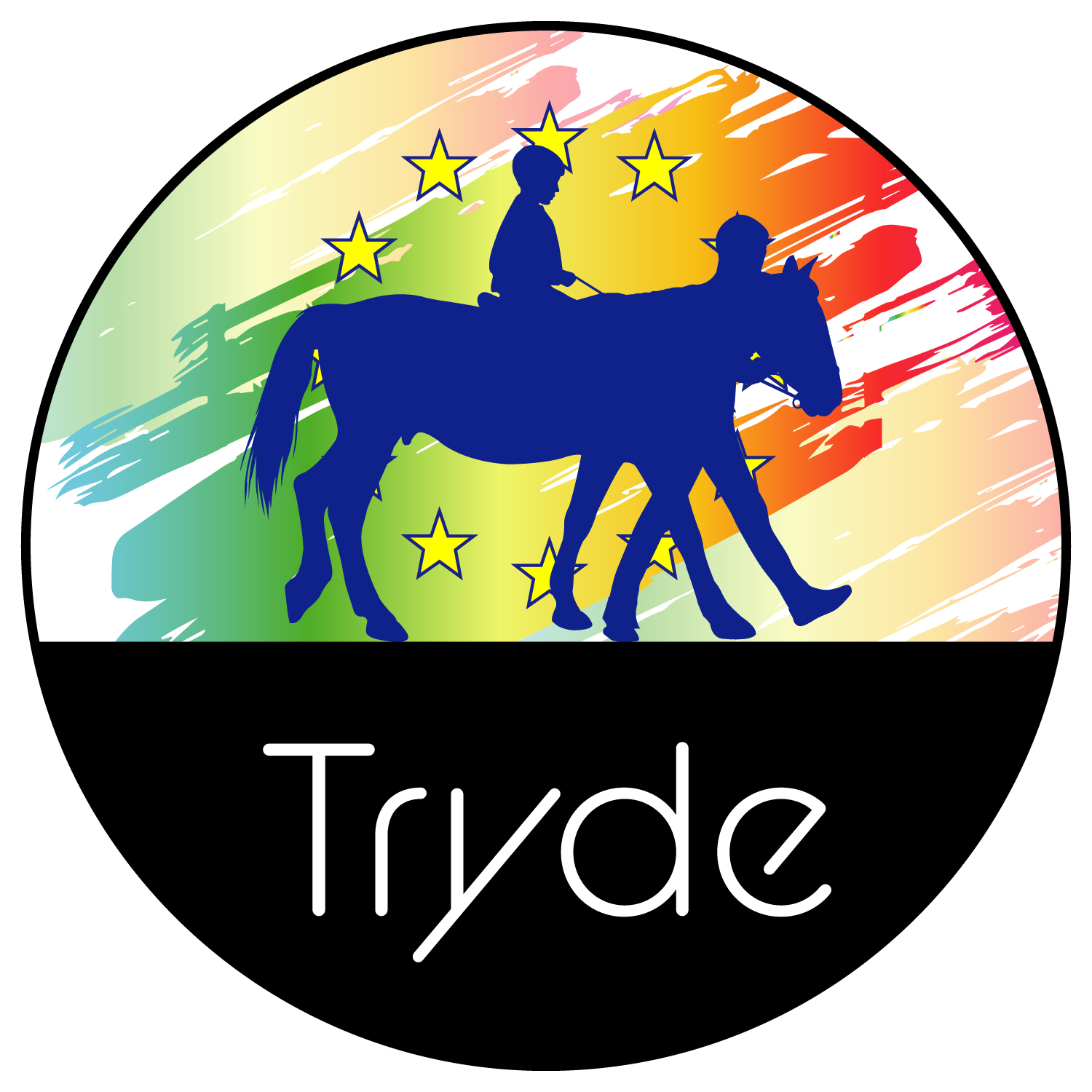
The partnership of the TRYDE project organizes a Virtual Training Course dedicated to operators (psychologists, EAI experts) who work with people with intellectual disabilities. The training of the TRYDE Project aims to disseminate the methodology of Equine Assisted Interventions (EAI).
The virtual training course will take place online in asynchronous mode (ie the contents will be available on the platform).
The duration of the course is 50 hours and will be divided into 3 thematic sessions:
1. General part
2. Preparatory works of the Gymkhana
3. Evaluation of the results of the Gymkhana
4. General Session: Sport and Intellectual Disabilities
The TRYDE training proposal is the result of an international effort developed within the Erasmus + project thanks to partners such as:
· CRE De Marco ONLUS – Italy
· Hi.K.E.R. International Institute – Greece
· Academia de Formação Equestre e Hipoterapia de Valongo e Campo – AFEHVC – Portugal
· Asociación Española De Equinoterapias - AEDEQ – Spain
· Maendeleo for Children - MfC – Italy
- Manager: Sara Cannazzaro
- Manager: Silvia Prati
- Creatore di corsi: Simona Calabrò
- Docente: Lorenzo Lucarelli

WP3 - CAPACITY BUILDING & INCLUSIVE PRACTICES will provide for the training materials, methods and tools based on benefits of T.R. approach, targeting professionals and experts in the field of Intellectual Disabilities, especially ASD, the TRYDE set of Training Materials produced will be then available as OER in the Platform, as an element for project sustainability and for its further use within the Virtual training courses.
Professionals, instructors and experts belonging to partners organizations will be trained and successively involve in non-formal activities on practical aspects of T.R., to empower their empathy and their know-how in stimulating and sustaining youth with Autism in sport activities, whom help communication and relationship skills and improve autonomy and sociability.
- Manager: Silvia Prati
- Docente: Lorenzo Lucarelli
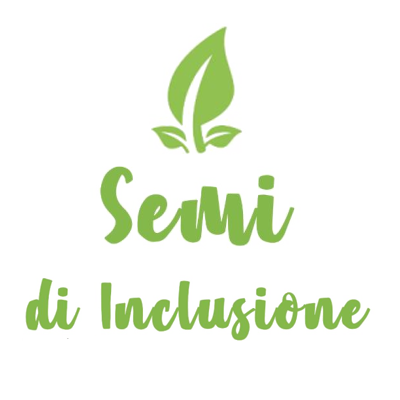
ll
progetto SEMI mira a favorire
l’inclusione sociale e lavorativa di 150 adulti (di età compresa trai 35
e gli 85 anni) in condizione di svantaggio economico e povertà (tra cui
disoccupati, migranti, rifugiati, anziani, disabili, famiglie in
difficoltà) del territorio dell’ASL RM6 (Comune di Ariccia) attraverso
un modello di servizi integrati, basato sulla realizzazione e gestione
di un orto comunale, sul sostegno socio-sanitario e su attività
laboratoriali inclusive e di formazione professionale, in grado di
contrastare efficacemente e tempestivamente marginalità e fragilità.
- Manager: Sara Cannazzaro

The project provides training courses for trainers and coaches to learn new ones methods and strategies to interface with children with autism thanks to the support of the discipline of Globality of Languages (GoL), stimulating non-verbal communication and teaching them approaches and techniques for integrate children with autism in sporting paths. Trainers and coaches will be trained both locally directly on the territory of the outskirts of Naples (in presence) and on the whole national territory thanks to the development of a platform that will deliver training via webinar/e-learning.

EUinAID intended to foster youth active citizenship throughout Europe by providing them (hard/soft) skills and competences on First Aid practice, through an innovative transnational approach to First Aid based on youth engagement, non-formal/informal learning and networking. As part of the innovation concerning learning activities, the e-training platform developed within EUinAID supported virtual mobility and allowed learners to strengthen soft (ICT) skills, and jointly with trainers, to actively participate in the training path by autonomously generating, exchanging and sharing formal and informal multimedia training contents. By this, young people used learning materials fitting to their technology readiness and have been supported in their skills needed for their job life and gained more self-esteem in their capabilities.

In order to develop socio-professional competences and soft and technical skills of youth workers and trainers capable to foster participation in sport and physical activities for young people with Intellectual Disabilities, the INSIDes project adopts a working methodology based on multiple aspects at all levels. One of these aspects regarding the virtual learning, consists in a multidisciplinary approach (including the innovative Italian discipline of the Globality of Languages (GoL) to address the special needs of young people with intellectual disabilities). The socio-psycho-pedagogical discipline "Globality of Languages" (GoL) ideated by the Italian pedagogist Stefania Guerra Lisi, usually oriented to therapeutic, educational, training and/or animation purposes, will be used for non-formal training courses targeting operators and professionals in the field of Sports, as a tool for enhancing inclusiveness of sport practices towards Youth and different target groups. Starting from the use of all communicative and expressive languages, mainly drawn from Arts (the discipline is open to all communication and expressive possibilities, verbal and/or non-verbal), GoL-based knowledge/hard/soft skills, focusing on the specificities of ASD, will be transferred encouraging personal and collective growth experiences for trainers, teams and athletes also through online sharing of open training contents, OERs.
- Manager: Sara Cannazzaro
- Manager: EAV POINT PLATFORM
- Manager: Silvia Prati
- Docente: Andrea Costa

The seminar has as its purpose the study and familiarization of the participant with the "Planning Focused on person" useful for planning transitions and other events of the life of children and adults with autism.
The course is developed and implemented within the project Erasmus + Project "AUTISM_PCP" (2018-1-EL01-KA204-0047788), a strategic partnership created from September 2018 to August 2021 in 5 countries: Greece (Cyclisis-Coordinator & DADAA), Bulgaria (PNCD), Cyprus (Shipcon), Italy (MfC APS), North Macedonia (MSSA) and Romania (SG Smaranda Gheorghiu).
The course is dedicated to operators (psychologists, educators, caregivers) who work with people with autism spectrum disorder, or in any case to all those who have direct or indirect experience of it and it lasts 20 hours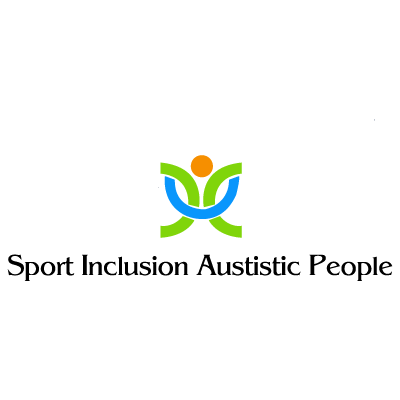
In order to increase and enhance social inclusion and autonomy of 30 Youth with ASD (13-21) and based on the assumption that sport plays a strong societal role as a source of and a driver for active social inclusion, SPID-AP project intended to deliver a transnational model of innovative inclusive practices based on sport activities, EU networking & capacity building in the field of Sport and Disability.
Based on the SPID-AP Training Materials produced, addressing coaches, PE teachers, CSOs staff and volunteers dealing with Youth &ASD, capacity building activities were carried out, mainly inspired by the socio-psycho-pedagogical discipline "Globality of Languages" (GoL) - by Stefania Guerra Lisi - usually oriented to therapeutic, educational, training and/or animation purposes with the use of all communicative and expressive languages, mainly drawn from Arts and used within the train-the-trainer courses engaging 119 learners as a tool for enhancing inclusiveness of sport practices towards Youth and different target groups. The piloting experience was thus completed by sports programs for young with ASD and Round Tables in each country with relevant stakeholders, presenting the SPID-AP model for further exploitation at institutional/non institutional level.






